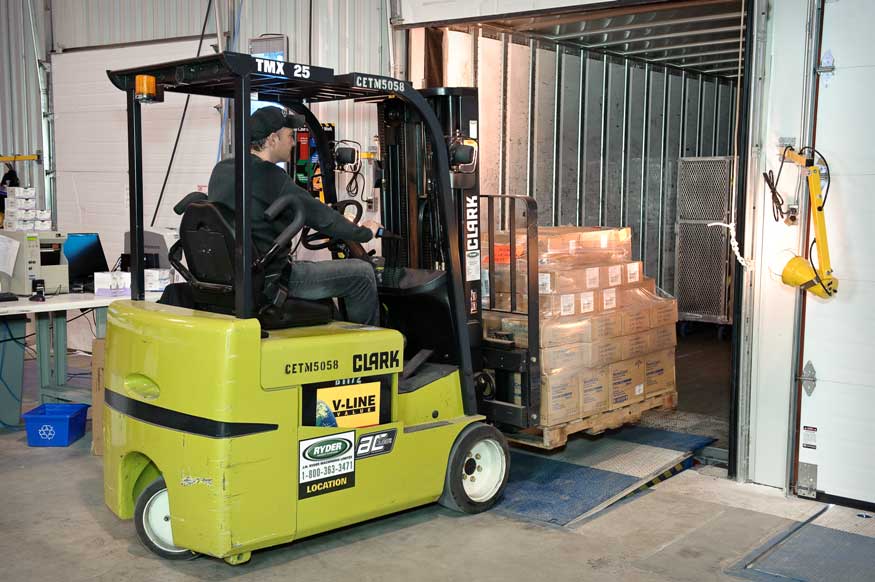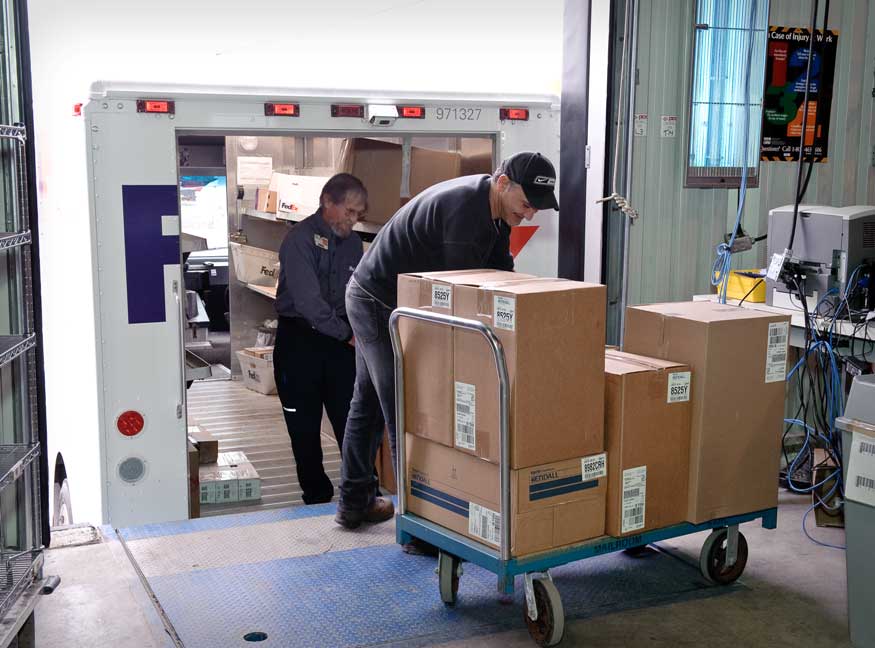Transportation Management Software (TMS) has become an essential tool for businesses involved in shipping, freight management, supply chain management, and distribution. This specialized software solution helps organizations streamline their transportation and logistics operations, reduce costs, improve efficiency, enhance visibility, and make data-driven decisions. In this article, we will explore the features, benefits, and key considerations of using Transportation Management Software.
What is Transportation Management Software (TMS)?
Transportation Management Software (TMS) is a technology solution that enables businesses to effectively manage and optimize the physical movement of goods within their supply chain. It is typically part of a larger supply chain management system and serves as a central platform for organizing and centralizing all logistics and transportation functions. TMS provides businesses with a clear view of how the supply chain is functioning and enables them to manage it effectively.
Features of Transportation Management Software
Transportation Management Software offers a wide range of features that help businesses streamline their transportation operations. Some of the key features include:
Load Planning
TMS allows businesses to plan and optimize the loading space of their containers, trucks, and trailers. It helps maximize the available space while considering the maximum weight capacity of each vehicle. By effectively planning loads, businesses can distribute orders between available delivery vehicles efficiently.
Route Planning and Optimization
Transportation Management Software comes with powerful route planning capabilities, enabling businesses to find the most efficient way to deliver their orders. By optimizing routes, businesses can cut down on inefficiencies, increase the number of deliveries, and reduce fuel and labor costs.
Load Execution
TMS automates the freight tendering process by digitally tendering loads based on the routing guide to the right carriers. This automation expedites steps such as booking and tendering of freight, saving time and effort.
Fleet/Carrier Management
For businesses that operate their own fleet, TMS provides the capability to manage their fleet effectively. It allows businesses to assign drivers, schedule vehicles, and manage dispatch. Additionally, TMS enables businesses to easily find rates, measure carrier capacity, and select the ideal carriers for each shipment when using third-party carriers.
Documentation Management
Transportation processes often involve multiple documents, forms, and compliance information. TMS automates document management, allowing businesses to generate bills of lading, conduct freight auditing, and create invoices efficiently. It also facilitates the sharing of import and export documentation to ensure trade compliance.
Tracking and Visibility
One of the key features of TMS is its ability to provide detailed tracking information on the movement of goods throughout the supply chain. Businesses can access real-time updates about their freight and gain insights into carrier performance.
Payment Management
With TMS, businesses can efficiently manage payments across different carriers and suppliers. They can review carrier invoices and make payments automatically when they are due.
Reporting
Transportation Management Software provides actionable reporting, allowing businesses to access in-depth reports on network and facility performance. These reports enable businesses to optimize their strategies, reduce costs, and improve efficiency.
Benefits of Transportation Management Software
The adoption of Transportation Management Software offers several benefits to businesses. Let’s explore the key advantages:
Cost Reduction
TMS helps businesses optimize their transportation operations, leading to significant cost savings. By streamlining processes, businesses can reduce fuel costs, labor expenses, and other operational costs. With the added functionality of rate shopping between multiple carriers, TMS can help with selecting the best cost and service level. Additionally, TMS enables businesses to make data-driven decisions that help identify cost-saving opportunities and improve overall supply chain efficiency.
Improved Efficiency
Transportation Management Software automates manual processes, eliminating the need for repetitive tasks and reducing the chance of errors. This automation improves overall efficiency, allowing businesses to focus on strategic initiatives rather than time-consuming administrative tasks. With real-time visibility into transportation operations, businesses can proactively address any issues that may arise and ensure timely deliveries.
Enhanced Visibility
TMS provides businesses with end-to-end visibility into their transportation operations. It allows businesses to track shipments, monitor carrier performance, and gain insights into the overall supply chain. Real-time visibility enables businesses to identify bottlenecks, track inventory, and address any potential delays or disruptions promptly.
Data-Driven Decision-Making
Transportation Management Software provides businesses with valuable data and analytics that enable informed decision-making. By analyzing key performance indicators and transportation metrics, businesses can identify areas for improvement, optimize routes, and make strategic decisions to enhance their supply chain operations.
Improved Customer Service
TMS enables businesses to deliver an exceptional customer experience by providing real-time updates on shipment statuses and accurate estimated delivery times. Enhanced visibility and proactive management of transportation operations lead to fewer delivery delays, increased customer satisfaction, and improved customer loyalty.
SCI’s TMS capabilities and benefits
SCI’s Transportation Management Software (TMS) is an advanced solution designed to enhance your logistics operations. Below are some of the key capabilities and benefits that make this system transformative for businesses:
1. Scalability and Flexibility:
Our TMS is highly scalable, capable of accommodating your business’s growth trajectory. Whether you’re a B2C or B2B enterprise, our system can be tailored to meet your unique requirements. From managing full truck load (TL), less than truckload (LTL), air, parcel, or last-mile solutions, our TMS offers the flexibility to adapt to your ever-changing needs.
2. Integration Capabilities for Complete Control Tower TMS:
Take advantage of seamless order visibility from warehouse to delivery with SCI’s fully integrated technologies including our Order Management System (OMS), Warehouse Management System (WMS), back-office systems, and external carrier partners. Our platform offers seamless multicarrier, multi-mode management, enabling you to maintain a unified logistics control. Our solutions encompass freight tender and acceptance, exception management, track and trace, freight bill audit and settlement, and business analytics that enable the cost and performance management of the network.
3. Transparency and Optimization with Business Intelligence Tools:
Our progressive technology and business analytics enable our transportation logistics experts to regularly monitor the health and performance of your network, balancing service levels and cost savings to help your business do better. Real-time, step-by-step tracking provides on-time performance and transparency throughout the delivery process.
4. Increased Efficiency and Bolstered Resiliency:
With our TMS, we help eliminate uncertainties in volatile freight markets. By combining long-term forecasts with contingency planning, we enhance resiliency for market and supply chain fluctuations. Our peak capacity transportation management services ensure reliable service and consistent capacity during volume inconsistencies.
5. Customer Support and Service Level Agreements:
Our dedicated customer support team works alongside your team, acting as your outsourced freight management department. We strive to provide the highest service levels, ensuring all your concerns are addressed promptly and efficiently.
Conclusion
Transportation Management Software (TMS) plays a vital role in streamlining logistics operations, reducing costs, improving efficiency, enhancing visibility, and enabling data-driven decision-making. By carefully considering the features, benefits, and considerations of TMS, businesses can choose the right 3PL with the right solution and transform their transportation and logistics operations to achieve greater success in today’s competitive market.
SCI is your trusted partner for reliable and future-focused transportation management services. Let us act as your outsourced freight management department. Our end-to-end managed transportation services will handle all aspects of your inbound and outbound transportation needs.
Request a consultation with SCI’s team to optimize your transportation management and enhance your supply chain logistics today!
Transportation Management System FAQs
- How does Transport Management System (TMS) work? A Transport Management System (TMS) is a software solution that streamlines the process of planning, executing, and optimizing the physical movement of goods. It starts with planning where the system determines the most efficient transport scheme given the specifics of the goods and constraints of time and cost. Then, execution involves carrier rate acceptance, carrier dispatching, and EDI transactions. Finally, it tracks the shipment data for reporting and analytics, helping businesses improve their overall efficiency and reduce costs.
- Why is TMS important in logistics? TMS plays a critical role in logistics as it enhances efficiency and transparency in supply chain operations. It allows for optimal route planning, freight consolidation, and real-time tracking, ensuring timely delivery of goods. TMS also aids in cost control by reducing manual tasks, errors, and redundancies, thereby improving the profitability of logistics operations. Furthermore, it provides valuable insights for decision making through comprehensive reporting and analytics.
- What is the difference between TMS and managed transportation services? TMS and managed transportation services are both critical components of logistics but serve different purposes. TMS is a software that helps businesses plan, execute, and optimize their transportation operations. On the other hand, managed transportation services refer to a third-party logistics (3PL) provider managing and overseeing a company’s entire transportation process. This includes everything from planning and strategy to execution and performance monitoring. Essentially, TMS is a tool, while managed transportation services are a comprehensive solution provided by a 3PL partner.
- What is the difference between TMS and WMS? TMS and Warehouse Management System (WMS) are both integral parts of supply chain management but focus on different areas. TMS is concerned with the movement of goods from one location to another, including route optimization, carrier selection, and real-time tracking. Conversely, WMS focuses on operations within a warehouse, such as inventory management, order fulfillment, and warehouse space optimization. Both systems can integrate for seamless operation, providing complete visibility and control over the entire supply chain.




